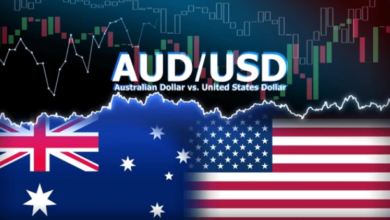- USD/CHF depreciates amid increased safe-haven demand following increasing concerns regarding slow growth and renewed inflation in the US.
- Trump plans to boost import tariffs from 25% to 50% to secure the US steel industry.
- The Swiss National Bank is widely expected to bring interest rate to zero in June’s policy meeting.
USD/CHF continues its losing streak for the third successive session, trading around 0.8210 during the Asian hours on Monday. The pair loses ground as the US Dollar (USD) may face challenges amid growing concerns regarding slow growth and renewed inflation in the United States (US). US President Donald Trump threatened to double import tariffs on steel and aluminum, increasing them to 50% from 25%.
Additionally, the Swiss Franc (CHF) receives support from increased safe-haven demand following decision by the US Court of Appeals for the Federal Circuit in Washington, on Thursday, temporarily allowed President Trump’s tariffs to take effect. The decision has reversed a Wednesday’s judgement made by a three-judge panel at the Court of International Trade in Manhattan to halt Trump from imposing “Liberation Day” tariffs from taking effect.
Traders keep their eyes on the Swiss National Bank (SNB) monetary policy outlook, with a widely expectations of rate cut to zero in June’s policy meeting. Deflation risks in Swiss economy remain a key concern with headline CPI flat year-over-year in April and core inflation easing to 0.6% from 0.9%.
The US Dollar Index (DXY), which measures the value of the US Dollar against six major currencies, is trading near 99.20 at the time of writing. Traders will likely observe US ISM Manufacturing Purchasing Managers’ Index (PMI) for May will be eyed later in the North American session.
US President Donald Trump noted on Friday that he planned to increase import tariffs on steel and aluminum, which may build up pressure on global steel producers and intensify the trade war. “We are going to be imposing a 25% increase. We’re going to bring it from 25% to 50% – the tariffs on steel into the United States, which will even further secure the steel industry in the US,” he said, per Reuters.







